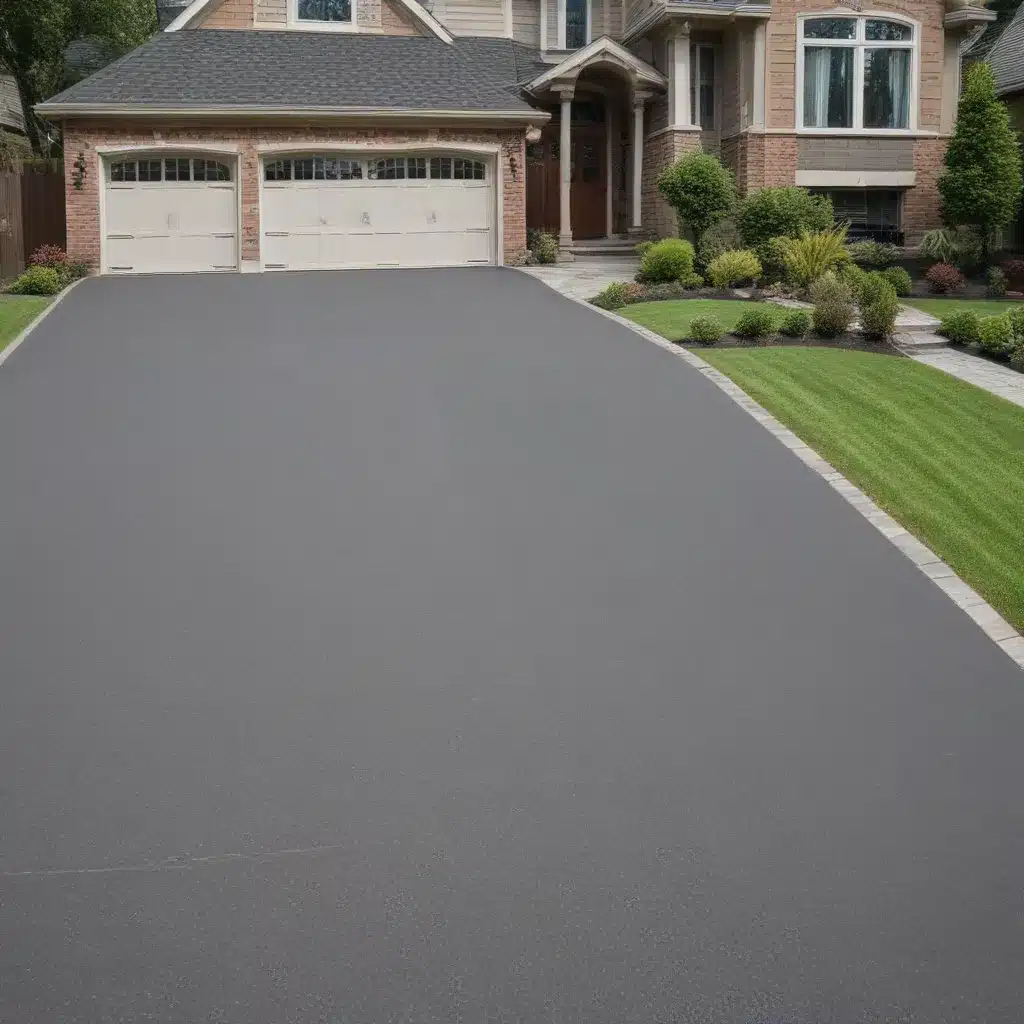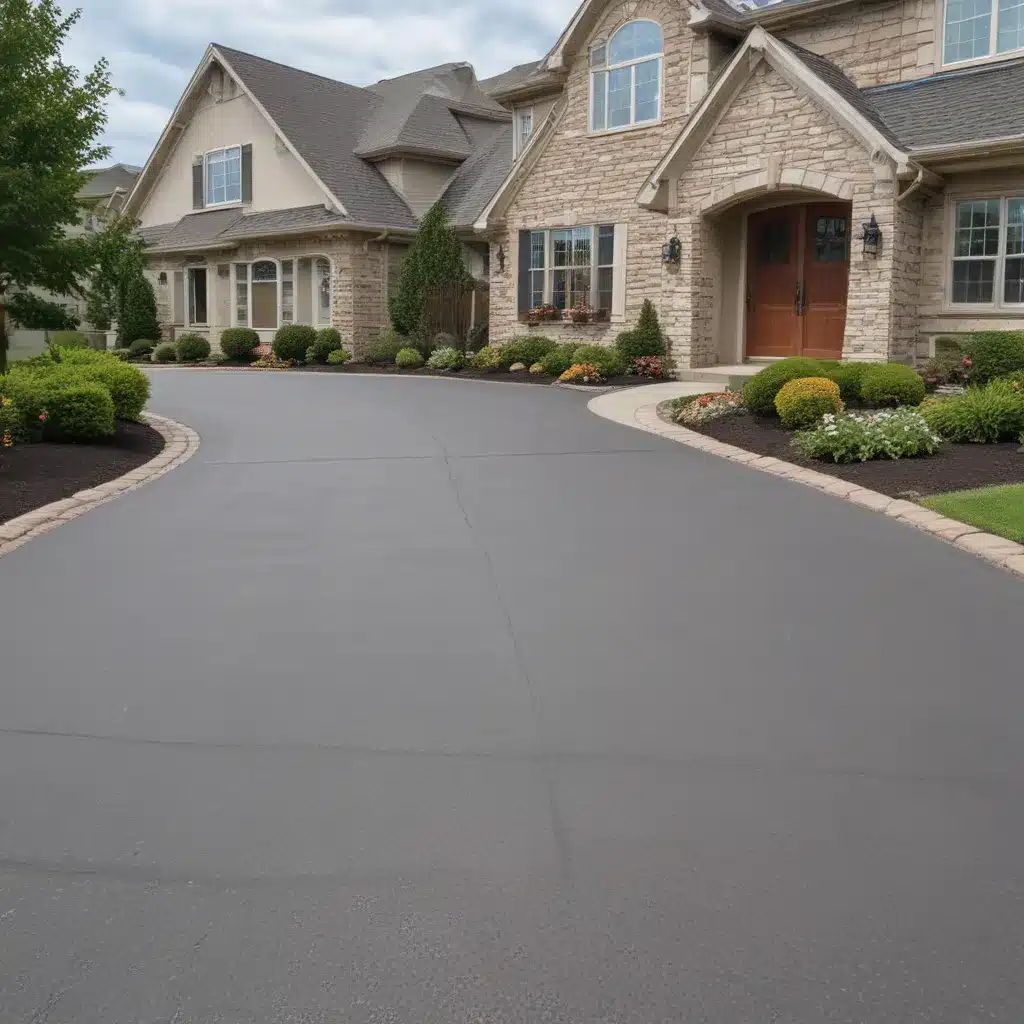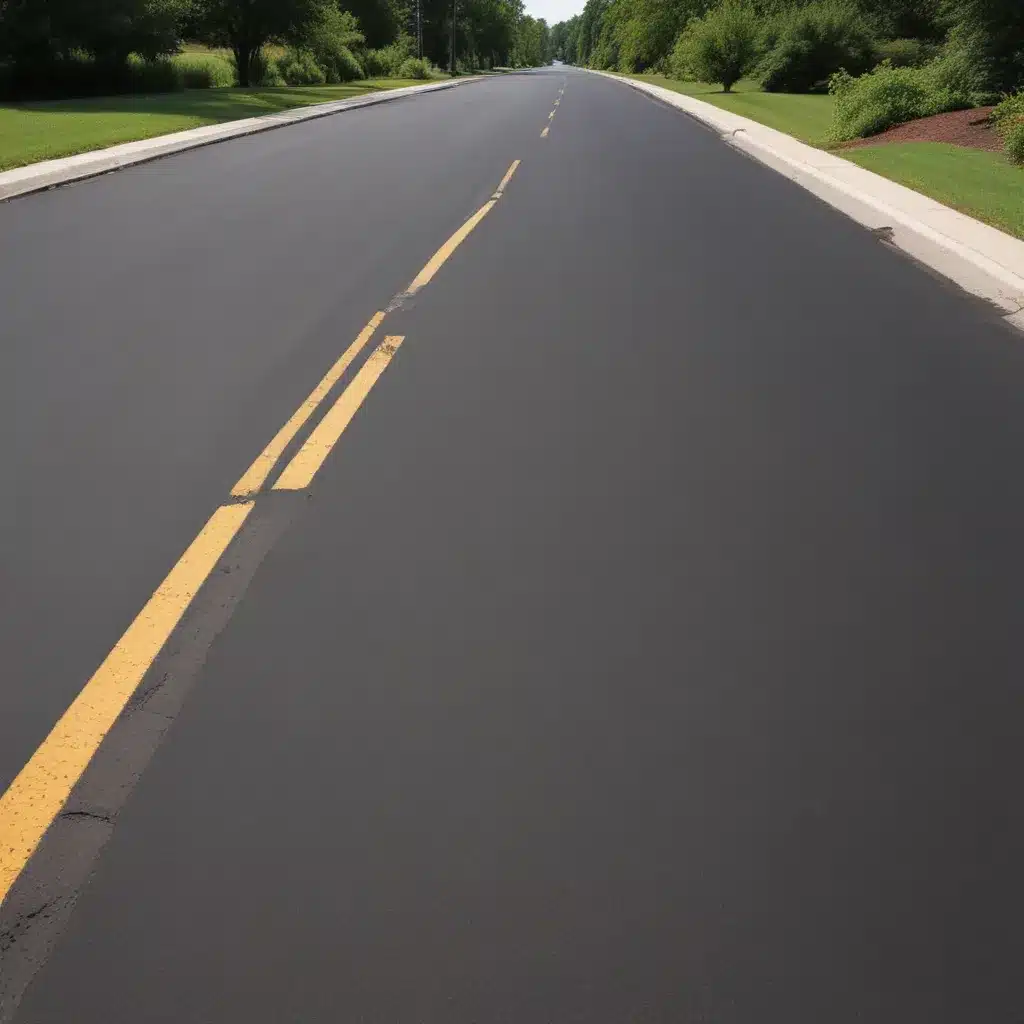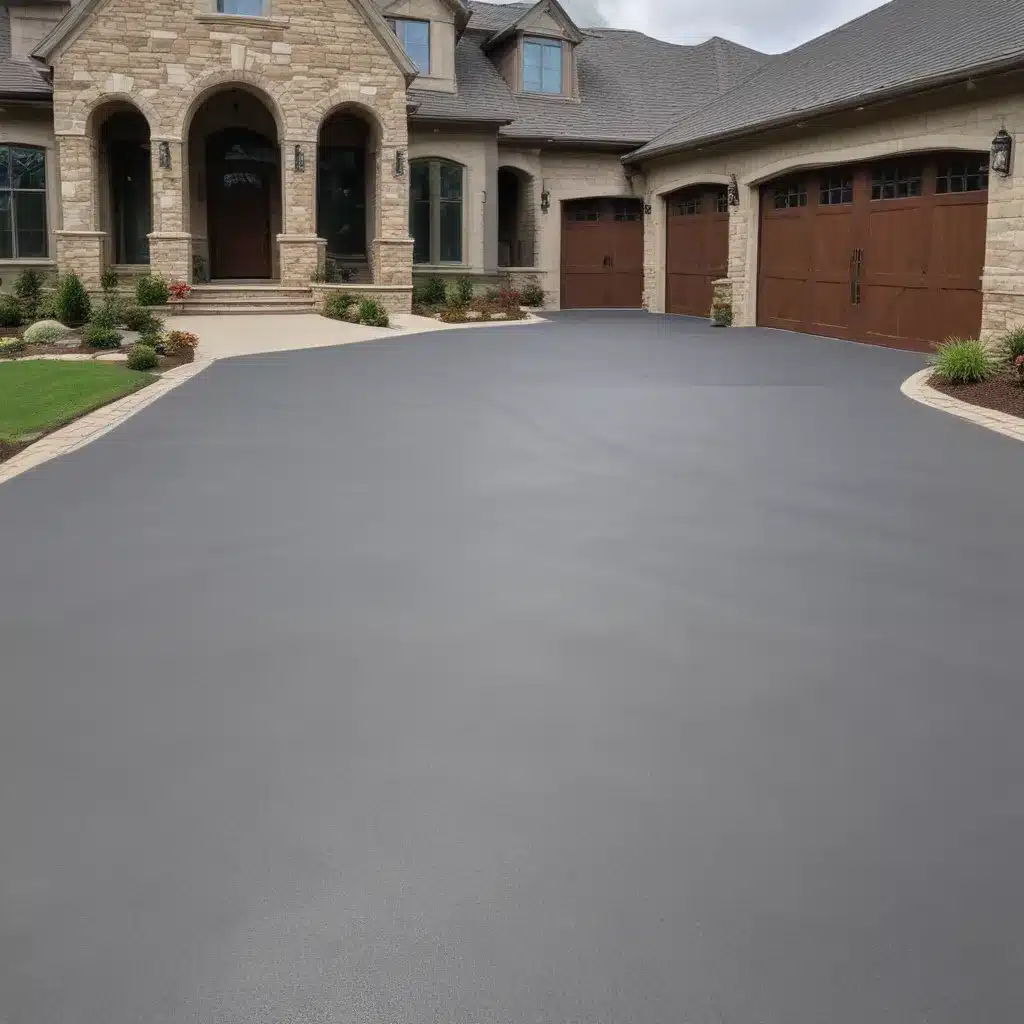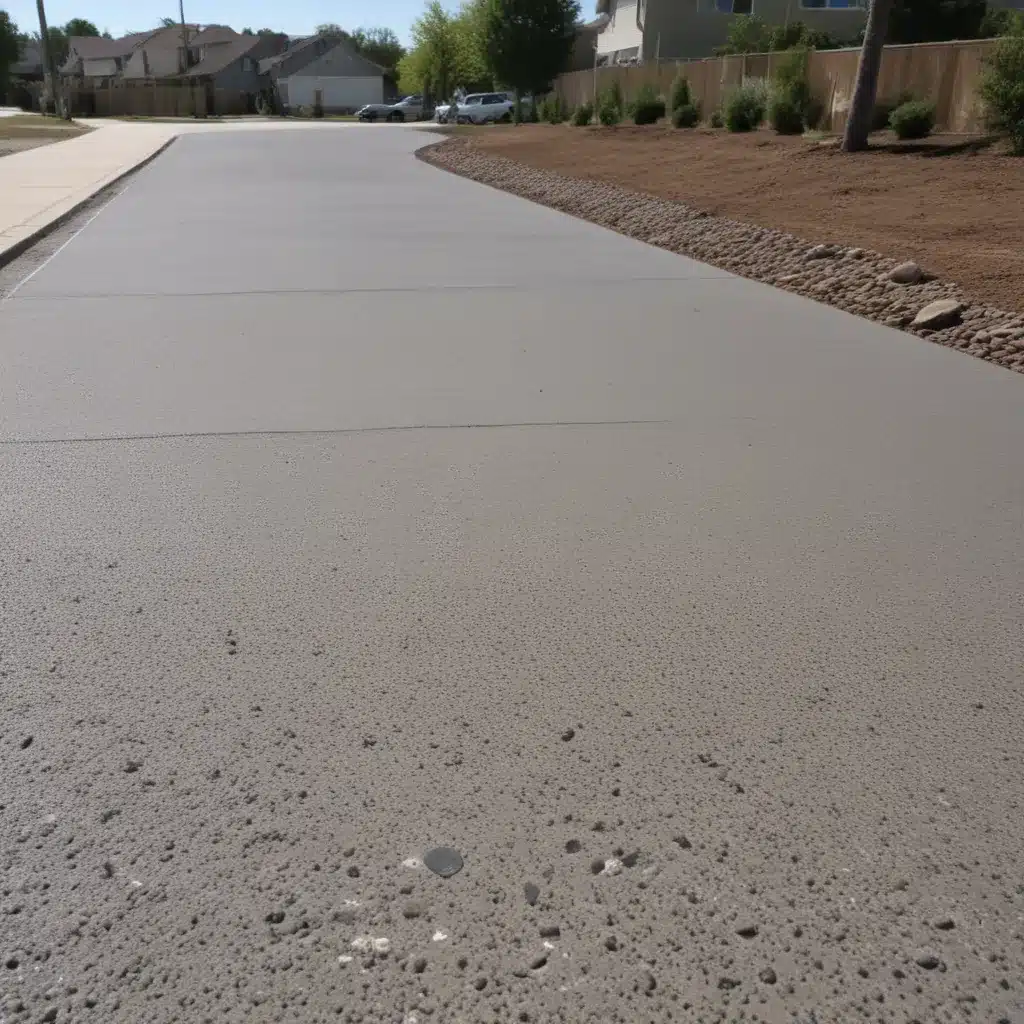The Driveway Dilemma: Navigating the Permit Maze
Ah, the humble driveway – that unassuming stretch of pavement that connects our homes to the world. Little do most people know, this seemingly simple structure can be a veritable minefield of regulations and red tape. As someone who’s been in the driveway services business for the better part of a decade, I’ve seen it all. From homeowners blissfully unaware of the need for permits, to municipalities playing hardball with arcane bylaws, the driveway permit process can be a bewildering experience.
But fear not, my friends! In this comprehensive guide, I’ll be your trusty sherpa, guiding you through the labyrinth of driveway permit requirements, costs, and processes. Whether you’re a first-time homeowner looking to install a new driveway or a seasoned DIYer embarking on a renovation, this article will arm you with the knowledge you need to navigate the system with confidence.
Understanding the Need for Driveway Permits
So, why do we even need permits for something as straightforward as a driveway? Well, it all comes down to the fact that your driveway doesn’t exist in a vacuum. It’s part of a larger infrastructure – one that local governments have a vested interest in managing and maintaining. You see, your driveway’s design, materials, and placement can have a significant impact on the surrounding environment, from storm water runoff to pedestrian safety.
Imagine if everyone just started building driveways willy-nilly, without any oversight or coordination. It would be a recipe for chaos, with driveways encroaching on public property, disrupting the flow of traffic, and creating potential hazards for pedestrians and cyclists. That’s why municipalities have put in place a permitting system to ensure that all new and modified driveways comply with their specific regulations and design standards.
And trust me, these regulations can get pretty intricate. From the width and slope of your driveway, to the type of materials you can use, to the placement of your curb cuts – there’s a lot to consider. That’s why it’s crucial to do your homework and understand the requirements in your area before embarking on any driveway project.
Navigating the Permit Process: Step-by-Step
Alright, now that we’ve covered the “why” behind driveway permits, let’s dive into the nitty-gritty of the application process. I’ll break it down for you step-by-step, so you can approach this whole endeavor with confidence.
Step 1: Research Your Local Regulations
The first and most important step is to familiarize yourself with the specific driveway permit requirements in your area. This can vary widely from one municipality to the next, so don’t assume that the rules will be the same as your neighbor’s or your buddy’s place across town.
Start by visiting your local government’s website or contacting the relevant department (usually the public works or transportation department). They should be able to provide you with a comprehensive list of the regulations, as well as the necessary application forms and instructions. Pay close attention to things like driveway width, slope, materials, and setback requirements – these tend to be the most common sticking points.
Step 2: Prepare Your Application
Once you’ve reviewed the regulations, it’s time to start gathering the necessary information and documents for your permit application. This typically includes things like a detailed site plan, drawings or sketches of the proposed driveway, and information about the materials you plan to use.
Don’t skimp on the details here – the more comprehensive your application, the smoother the approval process will be. And be prepared to provide any additional information or revisions that the reviewing authority might request. They’re not trying to make your life difficult, they just want to ensure that your driveway project meets all the necessary safety and design standards.
Step 3: Submit Your Application and Pay the Fees
With your application package in hand, it’s time to submit it to the appropriate government office. This is usually done in person or by mail, and you’ll likely need to pay a permit fee as well. These fees can vary widely, but you can expect to pay anywhere from $50 to $500 or more, depending on the scope of your project and your local regulations.
Be patient during this process – it can take several weeks (or even months, in some cases) for your application to be reviewed and approved. The good news is that once you’ve jumped through this initial hoop, you can typically get started on your driveway project right away.
Step 4: Comply with Inspections and Regulations
Now that you’ve got your permit in hand, the hard part is over, right? Not quite. You’ll still need to comply with any inspections and ongoing regulations throughout the construction process. This might include things like:
- Scheduling a pre-construction inspection to ensure your plans align with the permit requirements
- Allowing for periodic inspections during the construction process
- Adhering to specific guidelines for material usage, drainage, and safety features
- Obtaining final approval and a certificate of completion once the project is done
Staying on top of these requirements can be a bit of a hassle, but it’s crucial to ensure that your driveway project is done right and up to code. Trust me, you don’t want to be on the wrong side of the local building inspector – that’s a headache you definitely don’t need.
The Cost of Driveway Permits and Construction
Alright, let’s talk money. Driveway projects can be a significant investment, and the permit fees are just the tip of the iceberg. So, what kind of costs are we looking at here?
Well, the permit fees themselves can range anywhere from $50 to $500, depending on the size and complexity of your project, as well as your local regulations. Some municipalities may also charge additional fees for things like plan review, inspections, or even impact fees to offset the burden on local infrastructure.
But the real kicker is the cost of the actual driveway construction. Depending on the size, materials, and any special features you want to incorporate, you could be looking at anywhere from $3,000 to $10,000 or more. Factors like the type of pavement (e.g., asphalt, concrete, pavers), the need for excavation or grading, and any additional features like drainage systems or decorative elements can all significantly impact the final price tag.
And let’s not forget about the potential for hidden costs, either. Things like encountering unexpected underground utilities, having to remove and dispose of old driveway materials, or dealing with unforeseen weather delays can all add to the overall price tag. That’s why it’s crucial to work with a reputable driveway services company that can provide you with a clear and comprehensive estimate upfront.
Now, I know what you’re thinking – “Yikes, that’s a lot of money!” And you’re absolutely right. Driveway projects can be a significant investment, but they’re also an essential part of maintaining and enhancing the value of your home. Think of it this way – a well-designed, properly permitted driveway not only improves the curb appeal of your property, but it can also increase its resale value down the line.
So, while the upfront costs may sting a bit, it’s important to view your driveway as a long-term investment in your home and your community. And hey, at least you’ll have the peace of mind of knowing that your driveway is up to code and won’t come back to haunt you later on.
Real-World Driveway Permit Scenarios
Now, I know all of this talk about regulations, fees, and inspections can start to feel a bit dry and impersonal. So, let me share a few real-world examples that might help bring the driveway permit process to life.
Take the case of my friend, Sarah, for instance. She’s a first-time homeowner who decided to tackle a driveway renovation project on her own. She diligently researched the local regulations, submitted her application, and even passed the initial inspection. But then, disaster struck – the building inspector showed up unexpectedly and discovered that the materials she was using didn’t meet the minimum standards for her neighborhood.
Sarah was devastated. Not only did she have to tear up the partially completed driveway, but she also had to reapply for a new permit and start the process all over again. Needless to say, it was a costly and frustrating experience. But the silver lining? She learned a valuable lesson about the importance of thoroughly understanding the rules and regulations before starting any kind of home improvement project.
On the flip side, I’ve also had the pleasure of working with homeowners who navigated the permit process with grace and ease. Take my client, John, for example. He came to us with a clear vision for his dream driveway – a stunning, stamped concrete masterpiece with integrated drainage features and custom lighting.
The permit application was a breeze, as John had done his homework and ensured that his design ticked all the boxes. The inspections went off without a hitch, and the final product was a true showstopper. Not only did John’s new driveway instantly boost the curb appeal of his home, but it also provided him with a functional and well-designed space for parking and entertaining. And the best part? He did it all by the book, without any major headaches or delays.
These two stories illustrate the importance of understanding the local regulations, preparing a comprehensive permit application, and working with experienced professionals who can help you navigate the process. Because at the end of the day, the time and effort you invest upfront can save you a world of heartache (and cold hard cash) down the road.
Conclusion: Embracing the Permit Process for a Driveway Done Right
Well, there you have it, folks – a comprehensive guide to the world of driveway permits. From understanding the “why” behind the regulations, to navigating the step-by-step application process, to managing the financial realities of driveway construction, we’ve covered a lot of ground.
I know it can feel like a lot to digest, but trust me, it’s all worth it in the end. A properly permitted and constructed driveway isn’t just a symbol of your home’s curb appeal – it’s a testament to your commitment to safety, compliance, and responsible homeownership.
So, the next time you find yourself staring down the barrel of a driveway project, don’t let the permit process intimidate you. Embrace it as an opportunity to do things the right way, and enjoy the peace of mind that comes with knowing your new driveway is built to last.
And hey, if you need any help along the way, you know where to find us. Our team of driveway experts would be more than happy to lend a hand, whether it’s guiding you through the permit application, providing a detailed cost estimate, or tackling the construction itself. Because at the end of the day, we’re all in this together – one driveway at a time.

